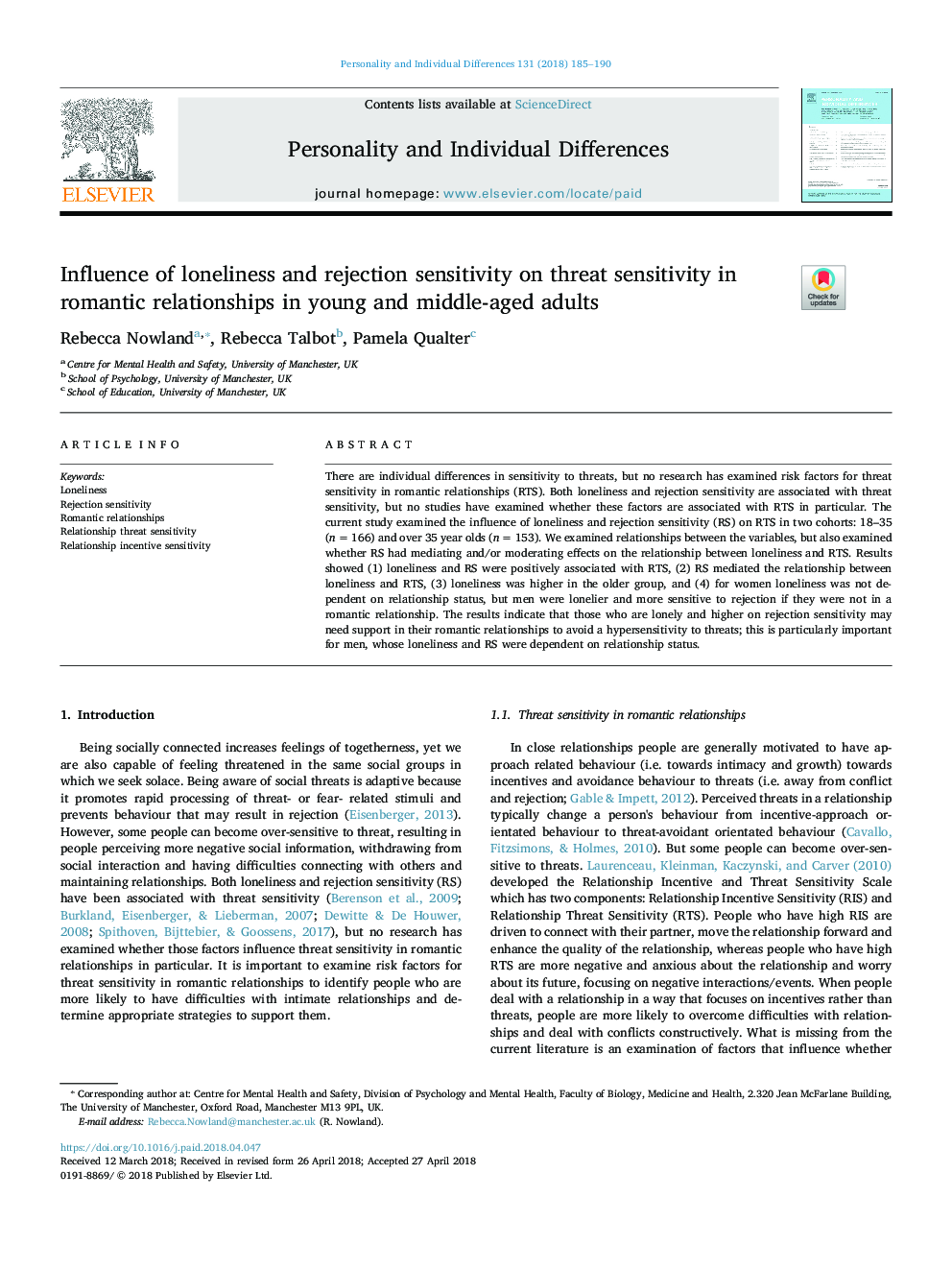| Article ID | Journal | Published Year | Pages | File Type |
|---|---|---|---|---|
| 7248587 | Personality and Individual Differences | 2018 | 6 Pages |
Abstract
There are individual differences in sensitivity to threats, but no research has examined risk factors for threat sensitivity in romantic relationships (RTS). Both loneliness and rejection sensitivity are associated with threat sensitivity, but no studies have examined whether these factors are associated with RTS in particular. The current study examined the influence of loneliness and rejection sensitivity (RS) on RTS in two cohorts: 18-35 (nâ¯=â¯166) and over 35â¯year olds (nâ¯=â¯153). We examined relationships between the variables, but also examined whether RS had mediating and/or moderating effects on the relationship between loneliness and RTS. Results showed (1) loneliness and RS were positively associated with RTS, (2) RS mediated the relationship between loneliness and RTS, (3) loneliness was higher in the older group, and (4) for women loneliness was not dependent on relationship status, but men were lonelier and more sensitive to rejection if they were not in a romantic relationship. The results indicate that those who are lonely and higher on rejection sensitivity may need support in their romantic relationships to avoid a hypersensitivity to threats; this is particularly important for men, whose loneliness and RS were dependent on relationship status.
Related Topics
Life Sciences
Neuroscience
Behavioral Neuroscience
Authors
Rebecca Nowland, Rebecca Talbot, Pamela Qualter,
